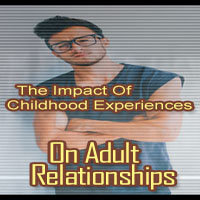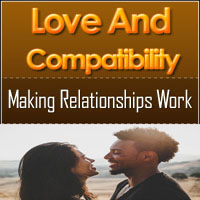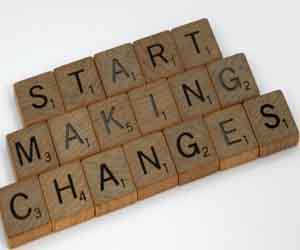
Experiences

Understanding Compatibility Tests

In the world of modern romance, finding your perfect match can sometimes feel like searching for a needle in a haystack. Fortunately, compatibility tests have emerged as a valuable tool to help individuals navigate the intricate landscape of relationships. These tests, often designed by psychologists and relationship experts, aim to assess the compatibility between partners, offering insights into the potential for a successful and harmonious long-term connection.
Defining Compatibility Tests
Compatibility tests are a series of questions or assessments that gauge various aspects of a person's personality, values, and interests, ultimately determining the degree of compatibility with a potential partner. These tests are based on the idea that a strong and lasting relationship is more likely when individuals share fundamental traits, beliefs, and life goals.
Types Of Compatibility Tests
There is a wide array of compatibility tests available, each focusing on different aspects of a relationship. Some assess personality traits, while others examine values, interests, and communication styles. A few tests are designed specifically for couples preparing for marriage, addressing topics like financial compatibility and family planning.
Scientific Foundation
Compatibility tests are typically grounded in psychological research and relationship science. They draw on established principles and theories to determine how well two individuals are likely to get along in a romantic relationship. These assessments often use personality traits, communication patterns, and shared values as primary indicators of compatibility.
Benefits Of Compatibility Tests
Self-Insight: Taking a compatibility test can provide valuable insights into your own personality and preferences. It's a chance to reflect on your own values and needs in a relationship.
Reducing Conflict: By identifying potential areas of disagreement or mismatched values early in a relationship, compatibility tests can help couples address these issues proactively, reducing the likelihood of conflict.
Saving Time And Heartache: For those searching for a partner, compatibility tests can expedite the process of finding someone with whom they are genuinely compatible. This can save time and emotional energy that might otherwise be invested in relationships that are not well-suited.
Improving Communication: Understanding your partner's communication style and preferences can foster healthier dialogue and reduce misunderstandings.
Limitations Of Compatibility Tests
It's essential to acknowledge that no test is a crystal ball. Compatibility tests have their limitations:
Simplification: These tests simplify complex human experiences and relationships. They can't account for all the nuances and idiosyncrasies of a specific relationship.
Change Over Time: People change, and so do relationships. What appears incompatible at one point may not be an issue in the future, and vice versa.
Subjectivity: The accuracy of compatibility tests can vary depending on the individual's honesty and self-awareness when answering questions.
Use With Caution
Compatibility tests are valuable tools when used as a part of a broader approach to understanding and strengthening a relationship. They can facilitate meaningful conversations between partners and help identify potential areas for growth. However, they should not be the sole determining factor in the success of a relationship. The magic of love often transcends numbers and assessments, and the dynamics of a relationship are influenced by a multitude of factors beyond compatibility.
Compatibility tests offer a structured and scientific approach to evaluating the potential for a harmonious and lasting relationship. While they provide valuable insights into the compatibility between partners, they should be used alongside open communication and a deep understanding of the complexities of love and human relationships. Compatibility tests can be a helpful tool in the journey of finding and maintaining a fulfilling, loving partnership.
Breaking Stereotypes And Finding Love
 The first challenge often faced by couples in age-gap relationships is societal judgment. Friends, family members, and even strangers may express skepticism or disapproval. It's important for individuals in such relationships to have a strong sense of self and unwavering confidence in their love. The opinions of others should not dictate the course of their love lives.
The first challenge often faced by couples in age-gap relationships is societal judgment. Friends, family members, and even strangers may express skepticism or disapproval. It's important for individuals in such relationships to have a strong sense of self and unwavering confidence in their love. The opinions of others should not dictate the course of their love lives.
One significant benefit of age-gap dating is the potential for a unique and complementary connection. The older partner typically brings wisdom, experience, and emotional stability to the relationship. This can provide guidance, reassurance, and a sense of security for the younger partner. Conversely, the younger partner can infuse the relationship with energy, a fresh perspective, and a more modern outlook on life, creating a harmonious balance.
Challenges may also arise due to differences in life stages and goals. The older partner may be thinking about retirement and travel, while the younger one may be focusing on career development and building a family. Effective communication is essential to ensure that these disparities are addressed and that both partners feel their needs are considered and respected.
It's crucial to remember that both partners in age-gap dating are consenting adults. The relationship must be built on a foundation of trust, mutual respect, and open communication.




Embracing A New Chapter In Love
 Embracing Change: One of the most important aspects of dating after divorce is the recognition that change is a part of life. The end of a marriage can leave emotional scars, but it also allows for personal growth and transformation. Embrace the idea that life is filled with opportunities, and new beginnings are just around the corner.
Embracing Change: One of the most important aspects of dating after divorce is the recognition that change is a part of life. The end of a marriage can leave emotional scars, but it also allows for personal growth and transformation. Embrace the idea that life is filled with opportunities, and new beginnings are just around the corner.
Healing And Self-Discovery: Before diving back into the dating pool, it's crucial to give yourself time to heal. Use the post-divorce period for self-reflection and personal growth. Understand what led to the end of your marriage, and what you've learned from the experience. This self-awareness can guide your future dating choices.
Rebuilding Confidence: Divorce can shake your confidence, but it's important to rebuild it. Rediscover your self-worth and remember that you are deserving of love and happiness. Reconnect with your passions, interests, and activities that make you feel good about yourself.
Setting Clear Intentions: Be clear about your dating intentions. Some individuals are looking for casual companionship, while others seek a long-term commitment. Setting and communicating your goals early on can prevent misunderstandings.
Learning From The Past: Your past marriage can be a source of wisdom. Reflect on what went right and what went wrong. Understand your role in the relationship dynamics and the lessons you've gained from the experience. Learning from your past helps you make more informed choices in future relationships.
Open Communication: Effective communication is a cornerstone of successful dating after divorce. Be honest about your past, your feelings, and your expectations. Encourage open dialogue with potential partners, allowing for a deeper connection based on trust and understanding.
Navigating The Maze
 Online Overload: In the digital age, online dating has become the norm. But with countless dating apps and websites, it's easy to feel overwhelmed. The key is to choose platforms that align with your goals and interests. Be selective and focus on quality over quantity.
Online Overload: In the digital age, online dating has become the norm. But with countless dating apps and websites, it's easy to feel overwhelmed. The key is to choose platforms that align with your goals and interests. Be selective and focus on quality over quantity.
Authenticity: Many people struggle with being their true selves on dates. It's essential to be genuine and not try to be someone you're not to impress your date. Authenticity is the foundation of a healthy and lasting connection.
Ghosting: The dreaded act of ghosting, where someone suddenly cuts off all communication, is a prevalent dating challenge. To combat this, practice open and honest communication. If you're not interested, it's better to express it respectfully rather than disappear.
Mismatched Expectations: Clear communication about your intentions and expectations is crucial. Some people are looking for a casual relationship, while others seek a long-term commitment. Be honest about what you want from the beginning.
Rejection: Facing rejection is a part of dating. Remember that it's not a reflection of your worth but rather a matter of compatibility. Rejection is an opportunity to learn and grow.
Trust Issues: Past relationship traumas can lead to trust issues in the dating world. It's essential to work on healing and rebuilding trust in yourself and others. Seek professional help if needed.
The Path To Personal Growth
 Acceptance: Accepting that you've made a mistake is a crucial part of the process. It's easy to become defensive or deny our errors, but true growth comes from acknowledging our imperfections. By embracing your mistakes, you open the door to self-improvement.
Acceptance: Accepting that you've made a mistake is a crucial part of the process. It's easy to become defensive or deny our errors, but true growth comes from acknowledging our imperfections. By embracing your mistakes, you open the door to self-improvement.
Identifying Patterns: Often, our mistakes are not isolated incidents but part of a pattern of behavior or decision-making. By identifying these patterns, you can take proactive steps to break them. Recognizing your tendencies can prevent you from repeating the same mistakes.
Seeking Feedback: Don't hesitate to seek feedback from trusted friends, mentors, or colleagues. They can offer valuable perspectives on your actions and decisions. Constructive criticism can provide fresh insights and help you see your mistakes from different angles.
Empathy: Extend empathy towards yourself. Mistakes are part of the human experience, and beating yourself up over them only hinders your growth. Treat yourself with the same kindness and understanding you would offer to a friend.
Taking Responsibility: Taking responsibility for your mistakes is a sign of maturity. It means owning up to your actions, apologizing when necessary, and making amends when possible.
 For most individuals, the first emotional connections are established within the family. The parent-child bond, in particular, is vital in shaping a person's emotional development. Infants learn to trust and love through their caregivers, and this early connection lays the groundwork for future relationships.
For most individuals, the first emotional connections are established within the family. The parent-child bond, in particular, is vital in shaping a person's emotional development. Infants learn to trust and love through their caregivers, and this early connection lays the groundwork for future relationships.
The emotional connection with one's family doesn't end in childhood. It evolves and matures over time. Siblings, for instance, often share an unbreakable bond that can last a lifetime. These connections offer a sense of belonging and a source of emotional support.
Friendships: Bonds Beyond Blood
Friendships are unique emotional connections. Unlike family, they are chosen connections, often grounded in shared interests, values, and experiences. Friends become confidants, companions, and pillars of support. These relationships offer a different perspective and, in some cases, an even deeper connection than family bonds.
Romantic Relationships: The Most Intimate Connection
Emotional connections in romantic relationships are among the most intense and profound. Partners share their hopes, fears, dreams, and vulnerabilities, forging a deep bond that can weather the storms of life. The quality of the emotional connection in a romantic relationship can significantly impact its longevity and overall satisfaction.
The Impact On Mental Health
Emotional connections have a profound impact on mental health. Strong, positive connections can reduce stress, increase happiness, and contribute to an overall sense of well-being. In contrast, a lack of meaningful emotional connections can lead to feelings of loneliness and depression.
The Role Of Empathy
Empathy is a critical element of emotional connections. It's the ability to understand and share the feelings of another person. When we empathize with someone, we create a bridge that deepens our emotional connection. Empathy promotes understanding, compassion, and the ability to provide emotional support.